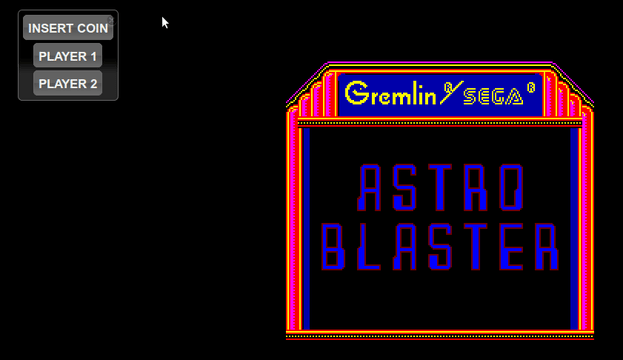In the late 1970s and early 1980s I worked a series of grungy industrial jobs in an area of Atlanta dense with bars. In fact, if blood alcohol level by geography were a census category, that part of the eastside would’ve been deep red on a census map. Video arcade machines were becoming a popular way for bar owners to keep customers in their establishments.
I spent many of my after-work hours feeding quarters into the machines to play Space Invaders, Pacman, Galaga, Donkey Kong, and other early arcade games.
Now I occupy some of my afternoons exploring the Internet Archive. Their Internet Arcade project preserves classic video games and provides a web emulator to play them.
Recently I logged a couple of hours on Astro Blaster, a 1981 game from Sega. When I began looking at the game, I thought it was a rip-off of Galaga, the most popular space shoot’em-up of that era. But I found that both Astro Blaster and Namco’s Galaga were released nearly simultaneously, after 1978’s Space Invaders demonstrated the popularity of the space opera arcade game.
I’ve been playing Astro Blasters on Firefox running on Ubuntu, but I assume the performance will be similar on all browser and operating system combinations.
Here are a few tips.
You begin by hitting the big green button, and waiting for the emulator to load. Then press “Insert Coin” and “Player 1”. The action starts quickly, so immediately move your hands to Ctrl (for shooting), and the left and right arrow keys (for movement), or you’ll lose your first ship within a second or two.
In my brief experience I’ve only been able to get through four levels, but the two most common ends to my sessions have been the destruction of all three ships, or running out of fuel.
Avoiding the loss of ships just takes good eye-to-hand coordination and practice, but the way to avoid running out of fuel is to shoot as many fireballs as you can when they start falling. Periodically a fuel docking station will lower, and you get fuel based on the number of fireballs you’ve shot.
The game is fun and surprisingly challenging, and the emulator is responsive. This would be a great game for someone interested in learning about early arcade video games.
I’m interested in hearing what other people think of the game:
Was it fun? Challenging? Did the emulator perform well in your browser?
Since arcade machines were my introduction to video games, I’d also like to know whether gamers raised on more modern fare find it challenging and fun, or just static and boring?
I’m sure the Internet Arcade would appreciate feedback, too. So if you play the game, and would like to give an opinion, leave a comment here on Gameskinny, and also on the page for the game at the Internet Arcade.







Published: Jul 20, 2015 06:29 am